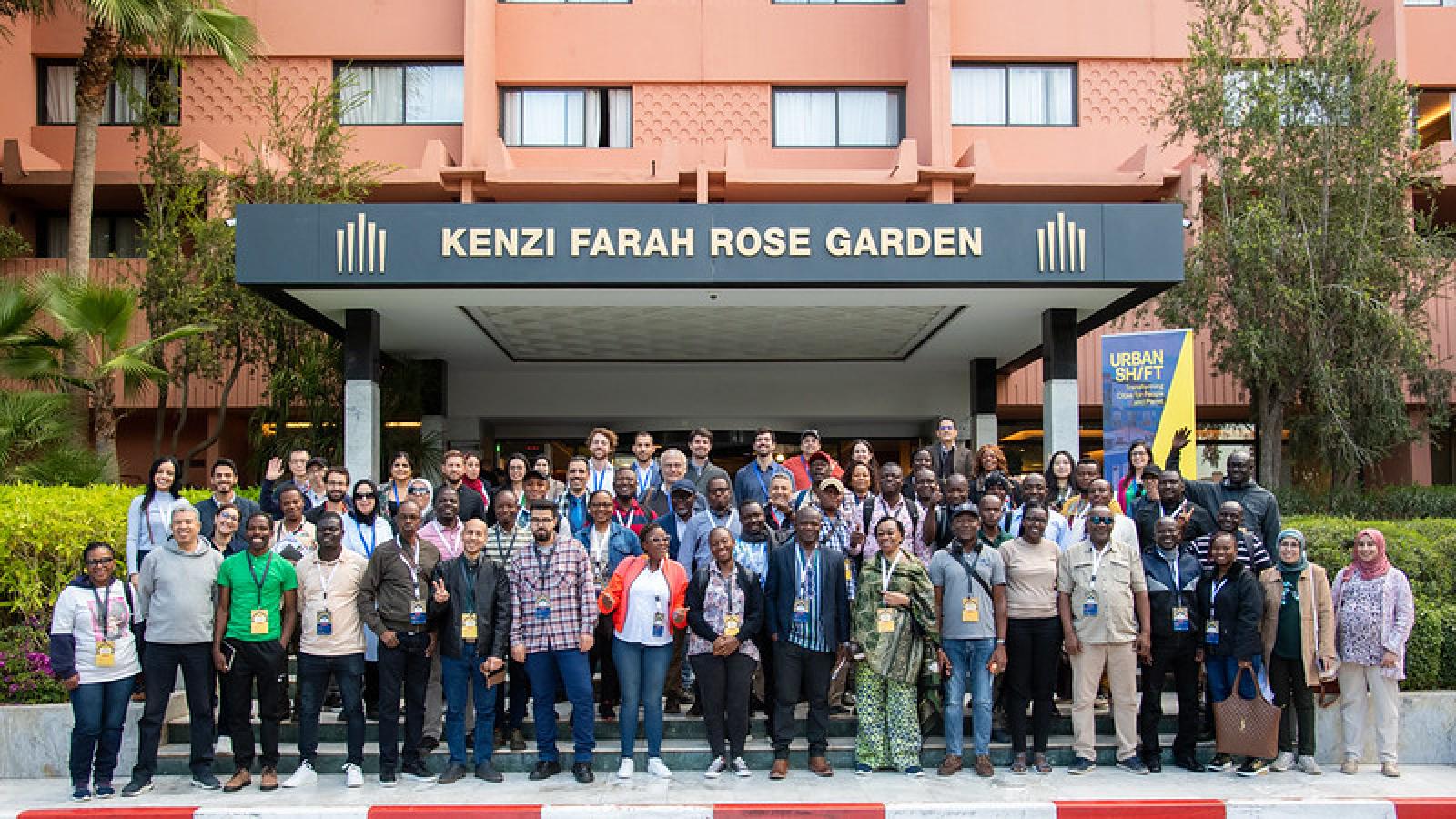Navigating Urban Biodiversity and Finance: Insights from UrbanShift's Marrakech City Academy
With Marrakech as the backdrop, participants in this UrbanShift City Academy for Africa engaged with innovative strategies for financing biodiversity and urban challenges like water management.
Image: Ismail Idrissi
Imagine a gathering where Africa's urban innovators converge, sharing insights and strategies to tackle pressing challenges facing cities today. That's precisely what unfolded at the UrbanShift Marrakech City Academy, held from February 13th to 16th, 2024. With 75 participants representing 25 cities across 7 countries in Africa, alongside representatives from 3 national governments, the event was a vibrant melting pot of ideas and expertise. This City Academy was hosted by the Government of Morocco, the City of Marrakech and the United Nations Development Programme, and was made possible by our funder, the Global Environment Facility.
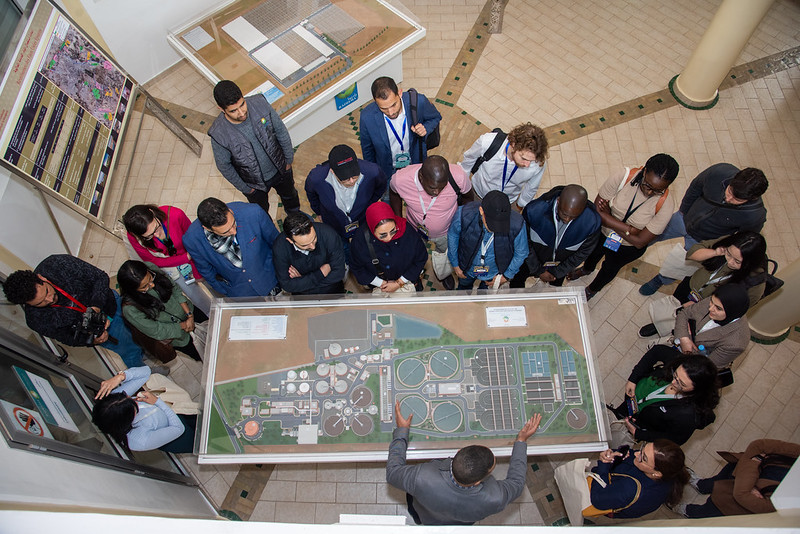
Over the course of four days, participants immersed themselves in two courses: one on urban biodiversity, and another on accessing urban climate finance. Each course offered participants in-depth presentations from experts across these fields, along with opportunities to apply concepts in real time through interactive exercises. Two site visits complemented the workshops: A visit to Marrakech Sustainable Water Management, which serves 1.8 million residents while producing energy and contributing to CO2 reduction, highlighted best practices for urban infrastructure, and Marrakech Palmeraie, the city’s vast palm grove, underscored the importance of preserving green space and biodiversity within the urban environment.
Participants came away from the City Academy energized and ready to apply the best practices learned to their home cities. For an overview of what they took away from the event, read on—and for deeper learning on the subjects of urban biodiversity and accessing urban climate finance, you can enroll in UrbanShift’s free, online version of each of the courses.
The UrbanShift City Academy Marrakech has helped cities build networks, share experiences and learn from other cities. – Amal Nadim, Cheffe de l’Unité Environnement, Energie et Changement Climatique, PNUD Maroc
Data: The Key to Unlocking Urban Development Opportunities
One resounding message echoed throughout the City Academy: data is the linchpin for unlocking finance opportunities and enhancing urban biodiversity efforts. Participants learned firsthand that access to granular data is not just beneficial, but crucial for effectively scaling investments and managing urban ecosystems. For instance, in the context of finance, cities like Lagos demonstrated how data can help formalize waste management, thereby creating new revenue streams and driving sustainable growth.
On the biodiversity front, data-driven approaches empower cities to implement urban ecosystem accounting. Simple methods can evolve into more comprehensive strategies as data accumulates. This iterative process was highlighted through impactful projects in Marrakech and Kigali, where data was used to gain insights into urban ecosystems and tailor conservation efforts accordingly. By leveraging comprehensive datasets, cities can address specific challenges and maximize the impact of their investments in both finance and biodiversity.
Overcoming Challenges with Finance
Climate finance emerged as a central theme at the City Academy, with cities grappling with the complexities of funding climate-related infrastructure. A deeper dive into finance revealed that while there is progress in funding climate actions and infrastructure globally, the challenge lies in finance readiness. The academy shed light on various avenues cities can explore to enhance their revenue streams and increase investment in climate action. Strategic evaluation of revenue sources, considering factors like operational costs and impact, is key to maximizing investment effectiveness. Furthermore, fostering partnerships between public and private sectors can unlock additional sources of climate finance. By leveraging the expertise and resources of both sectors, cities can mobilize greater financial resources and accelerate the implementation of climate adaptation and mitigation measures.
Despite the growth in the global green bond market, a bottleneck remains: the scarcity of finance-ready projects. Cities must effectively communicate the socio-economic benefits of climate actions to attract investment. By translating these benefits into the language of investors, cities can enhance their chances of securing funding and accelerating sustainable urban development.
Deepen your knowledge on urban climate finance by enrolling in the UrbanShift Online City Academy course on Accessing Urban Climate Finance
Accounting for Biodiversity
The discussion on urban biodiversity emphasized the importance of urban ecosystem accounting and building out a comprehensive biodiversity strategy. While the concept may seem complex, the message was clear: it doesn't have to be complicated. Starting with simple methods and gradually building upon them as data accumulates can yield meaningful results. This iterative approach empowers cities to gain valuable insights into their ecosystems and tailor conservation efforts accordingly.
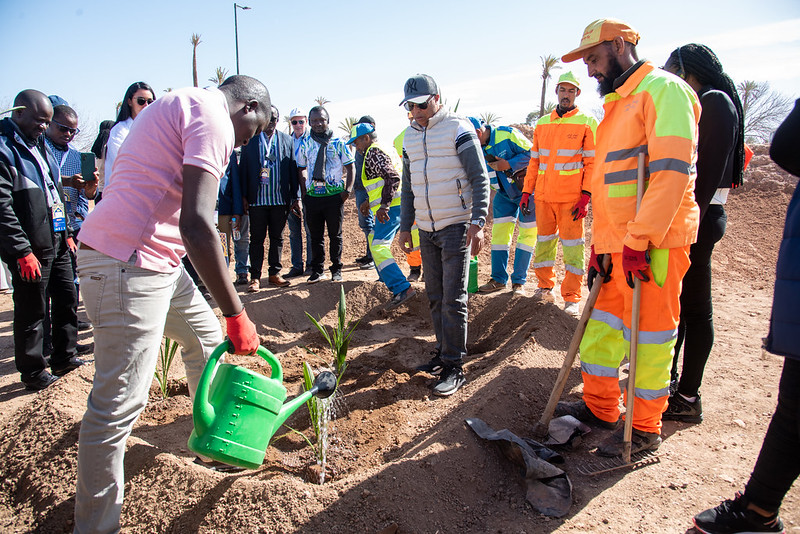
During the City Academy, participants had the opportunity to test UrbanShift’s global dashboard. They explored different indicators and discussed their implications for their respective cities. Using global datasets to draw insights was a significant takeaway for many attendees, demonstrating how urban ecosystem accounting can be integrated into broader urban development strategies.
By focusing on data-driven approaches, cities can effectively manage their biodiversity, prioritize investments, and drive sustainable urban development.
Curious to learn more? Enroll in the UrbanShift Online City Academy course on Urban Biodiversity
Marrakech: A Case Study in Sustainable Water Management
Marrakech, our host city, is facing significant water stress. Despite challenges, the city has implemented innovative solutions to address its water management needs. Participants toured one of the world's largest wastewater treatment plants, which not only services 1.8 million residents but also produces energy and contributes to CO2e reduction. The treated water irrigates green spaces and iconic landmarks through public-private partnerships. These partnerships combine funding from both private enterprises (such as hotels and golf courses) and public funds to enable the building and functioning of the water treatment facility. Until 2008, the sewage from Marrakech-Tensift El Haouz was minimally treated before being discharged into the Tensift River, posing significant health risks to the local population. Today, the Marrakech municipal wastewater treatment plant stands as Africa's most sustainable facility of its kind. The treatment process encompasses primary, secondary (biological), and tertiary stages, ensuring the water is suitable for reuse. Sludge generated during treatment is digested and converted into biogas. The remaining digested sludge is then dehydrated in greenhouses utilizing solar thermal energy.
Marrakech is demonstrating how cities can take an integrated approach to addressing water scarcity challenges. By adopting a holistic approach that combines wastewater treatment, water reuse, and efficient irrigation practices, cities can enhance water resilience and ensure sustainable water supply for future generations.
Looking Ahead
As cities continue to grapple with the complexities of sustainable urban development, platforms like UrbanShift provide invaluable opportunities for collaboration and knowledge exchange. The City Academy served as a catalyst for cities to explore innovative solutions, exchange best practices, and forge partnerships. With urban biodiversity and climate finance at the forefront, cities are better equipped to navigate the challenges ahead and build a more sustainable future for all.
The Marrakech City Academy laid the foundation for ongoing collaboration and knowledge exchange among the participating cities, ensuring that the insights and lessons learned from the event translate into tangible actions and positive outcomes for urban communities around the world. A tangible example of this is representatives from Dar Es Salaam showing great interest in joining the C40 Cities Urban Nature Accelerator. Another inspiring example is the city of Lagos taking steps to introduce the waste management proposals they presented and brainstormed on at the City Academy.
A Global Exchange of Ideas
The City Academy welcomed experts from myriad organizations, enriching discussions on topics ranging from fiscal decentralization to environmental management. From the World Economic Forum to local municipalities, diverse perspectives converged to drive collective action and inspire change. Aside from experts from the World Economic Forum, Global Covenant of Mayors (GCoM), UN Capital Development Fund, European Investment Bank, UN Habitat, UNEP World Conservation Monitoring Centre (WCMC), International Institute for Sustainable Development (IISD), International Union for Conservation of Nature (IUCN), Mohamed VI Foundation, Régie Autonome de Distribution d'Eau et d'Electricité de Marrakech (RADEEMA), and UNDP Morocco, we also heard from the Sierra Leone Ministry of Finance on the fiscal decentralization process, Rwanda Environmental Management Authority (REMA), City of Bo (Sierra Leone), and many others.
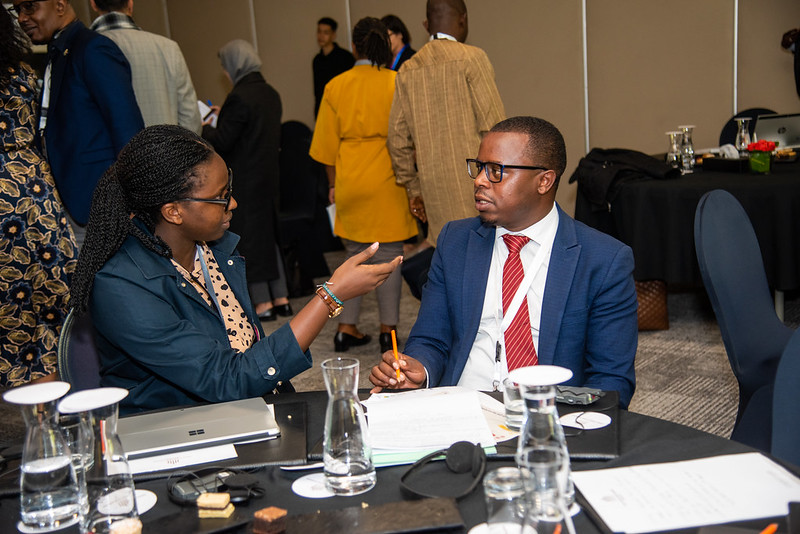
Moreover, the diverse range of perspectives represented at the Academy emphasized the importance of collaboration and knowledge exchange in addressing complex urban challenges. By fostering partnerships between different stakeholders, cities can leverage collective expertise and resources to drive meaningful change and build more resilient and sustainable urban environments.
Accessing Urban Climate Finance
Urban Biodiversity
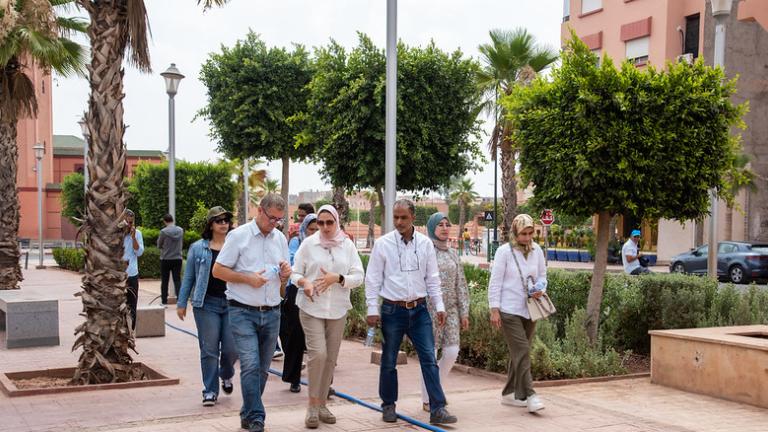
After a devastating earthquake, Marrakech plans to build back with resilience
Reflecting on how, with UrbanShift's support, the city of Marrakech is making strides to enhance its urban nature and lower emissions.

UNEA-7 Cities and Regions Summit
Hosted in the lead-up to UNEA-7, this Summit will unite subnational leaders to strengthen collaboration and amplify the importance of cities.
